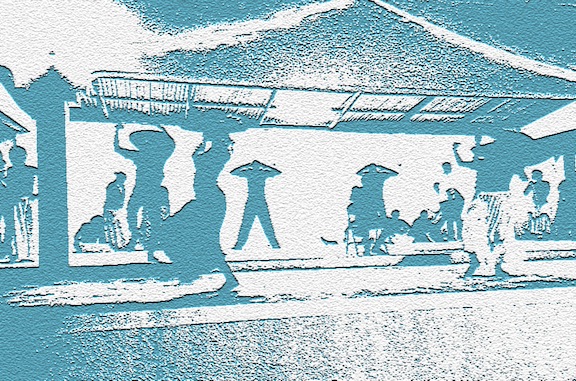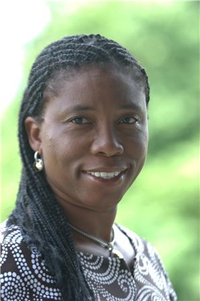By Guerda Nicolas
CJ Contributor
As Haiti marks 210 years of independence, in the face of continual challenges from the massive earthquake in 2010, in the historical region of Arcahaie Haiti (often referred to as the mother of Haiti), there are signs of courage, pride, community engagement and hope.
That was exemplified in the recent production and performance by youths and seniors in the production of Peripesi Mache Chache, supported by the Hope on A String organization.
Hope on a String (HOAS), a nonprofit organization founded by Pierre Imbert and Bennett Rathbun, rests in a community that serves a population of young, talented and inspiring people.
“HOAS’ music program has become an outlet for creative expression and community therapy,” said Lara Berry, country director for Hope on a String. “Many of our performances are built on social and cultural themes of daily life and experiences in the community. Our music and performing arts activities offer individuals within the community a chance to engage in cultural and creative expression. The Hope on a String community centre has often been used as an outlet for community discussions confronting issues and problems within the community.”
Peripesi Mache Chache is a musical about two intellectually talented young brothers who decide to leave Haiti on a dangerous and illegal journey in search of greater opportunity in the United States of America.
Although their mother is stricken with sadness and guilt that her children must embark on this dangerous journey, she believes in and supports the idea, knowing that this is their only opportunity to a better future.
The musical conveys an attitude of diminishing hope in the future of Haiti, the hardship one must go through in the Kantè (boat) to the US and the impact that it has on the community left behind.
Once the main character has reached the US, the story sheds light on his battle of being a Haitian in a foreign land, his developing pride for his home country, and the need for him to return and invest in his country. T
To date, there is no known history of the Arcahaie community producing a full-scale musical production. Hope on a String is the first to have produced a musical in this part of Haiti.
The brains behind the play are Nelly Innocent (Musical Arrangement Director; Mesac Chery Joseph (Music Composer); William Delva (Script Writer and Director of the production); and Lara Berry (Choreographer).
Each of these individuals brings to the production his or her own story of hardship, survival, and perseverance.
“The story is about my life, I’ve lived the script,” Delva says.
The leaders of the play highlight the importance of “knowing yourself, understanding your strengths and your weaknesses as you embark in such a journey.” For those who perform and those who watch, it offers an opportunity to reflect together on this message, one that all members of the community share and experience.
“[We hope] to show Haitians that they can achieve big things with little resources,” Joseph says.
For Berry, the musical is a form of community healing.
“I think that the play has been a source of therapy not just for the participants, but expressing a history, an activity that affects their lives and the lives of their families every day,” she says. “I think that it was therapeutic for the community to come together and get to share something that they are collectively experiencing.”
This was underscored on the day of the opening performance, when a group of 18 individuals were killed on a boat attempting to leave Haiti, bound for the US.
The participants of the play come from different age, gender, and religion and the performance represents the central aspect of the Haitian culture, of coming together to achieve, “L’union fait la force.”
The work of the leadership team, the dedication of the participants, and the citizens of the area exemplify the mantra of the Haitian people: “L’Union Fait la Force”.
“Our identity, our soul is in our collective energy…that is what I am fighting for,” Joseph says. “That fight has started, the consciousness of the people of the region has been raised.”
Dr Guerda Nicolas, a Caribbean Journal contributor, is the chair and associate professor in the University of Miami’s Department of Educational and Psychological Studies

